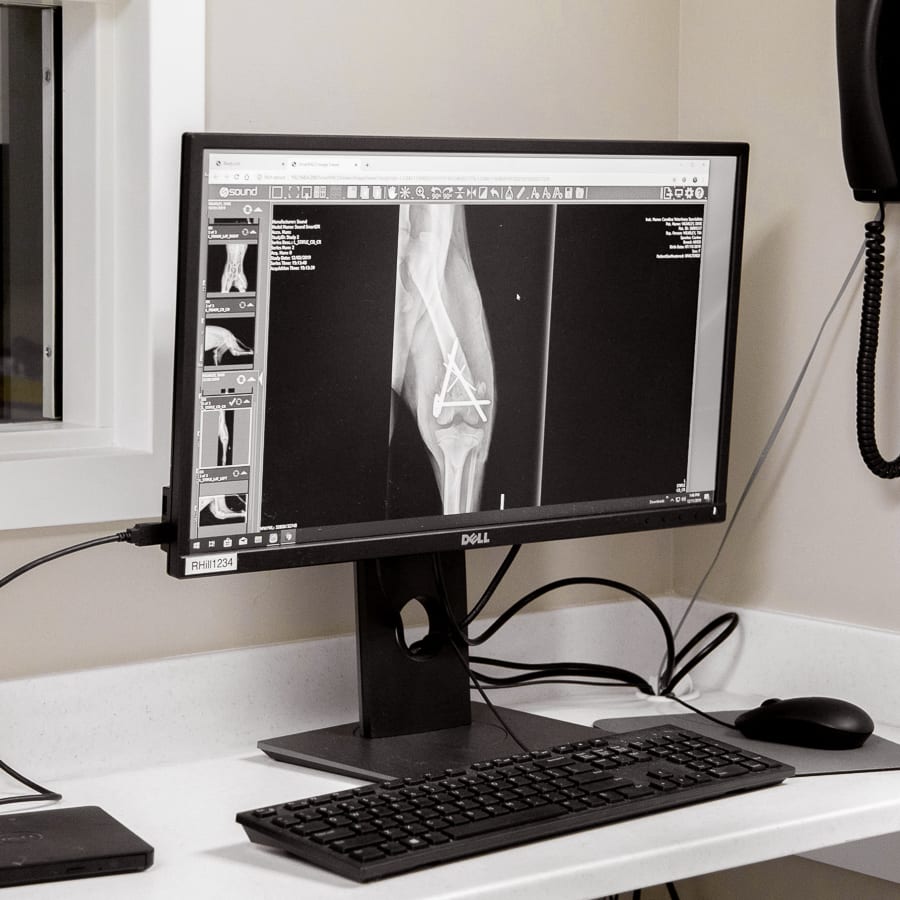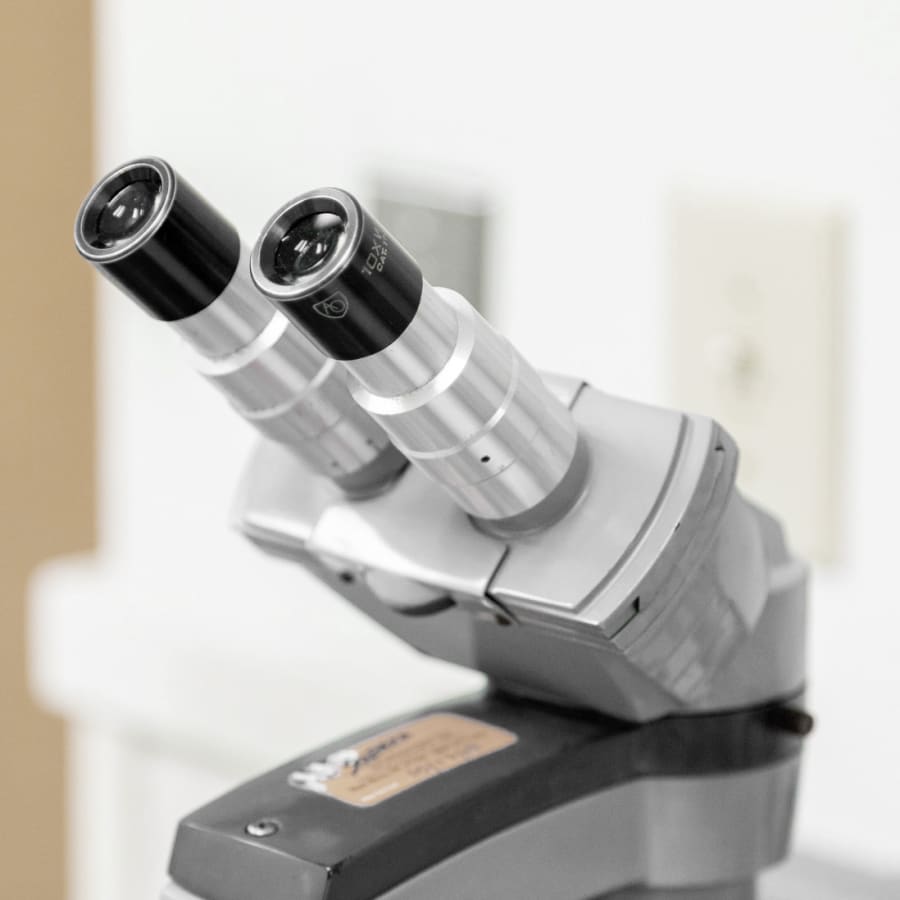Equine Diagnostic Lab
We use electromagnetic radiation and other technologies for diagnostic imaging. This allows us to produce highly detailed images of your pet's internal structures.
At Northwest Veterinary Clinic of Mount Vernon, we have advanced tools to help accurately diagnose your pet's medical issues. We offer a variety of services, from digital radiology to ultrasound.
With our diagnostic imaging capabilities, we can efficiently produce accurate diagnostic information about your pet's condition and provide immediate treatment options.

Ambulatory Services for Horses in Mount Vernon & Beyond
If your horse needs veterinary care at your farm, our veterinarians can come to you with fully equipped trucks, stocked with the technology and tools needed to diagnose your horse's condition.

Our Diagnostic Services
With our in-house veterinary diagnostics lab, we are pleased to offer advanced diagnostic testing to allow our vets to provide an accurate diagnosis of your pet's medical issues.
- Radiography (Digital X-rays)
Radiographs are often the first diagnostics imaging modality used to evaluate lameness. Digital Radiography allows for potentially greater detail than conventional radiography by having each image be processed by the computer.
Digital radiography services for equine patients both in our hospital and on the farm allow us to diagnose issues such as fractures, laminitis, wounds, foreign objects, and penetration of joints. They can also be used for pre-purchase exams and lameness evaluations.
- Ultrasound
Ultrasound uses sound waves to offer a non-invasive, painless, and radiation-free method of imaging your horse's internal organs, tendons, and ligaments. Compared to radiographs, ultrasound highlights soft tissue changes such as tears in a tendon or ligament. This can be used to diagnose an injury, but also in advanced management of an injury and to guide you and your horse on the track to recovery.
Ultrasound can also be used to guide technical joint injections such as cervical spine (neck), lumbar spine (low back), and the sacroiliac joint (SI). Ultrasound is also useful in diagnosing masses or lumps. This can be used not only externally but internally as well.
- Gastroscopy
Gastroscopy describes a complete examination of the two lining tissues of the horse's stomach using a flexible video endoscope. It is performed under light sedation and images are captured at specific points around the stomach and are graded and defined by type.
- Cytology
Cytology, which is the study of cells, involves the collection and examination of cells and fluid from organs, tissues, and body cavities. Cells naturally shed from the surfaces of mucous membranes, organs, and skin lesions, and they can be collected for examination.
Veterinarians can collect fluid and cells from difficult-to-reach tissues like the respiratory tract, the guttural pouch, and the reproductive tract.
Laboratory examination helps characterize the cell types and evaluate the fluid present to determine health or disease status.
- Bloodwork
At our vet lab in Mount Vernon, we can run several common and specialized blood tests to determine the health of your horse and to diagnose illness.
Some of the most common veterinary blood tests we do are CBC (complete blood count), white blood count, hemoglobin and MCHC (mean corpuscular hemoglobin concentration), hematocrit, platelets, eosinophils, and blood serum profiles.
